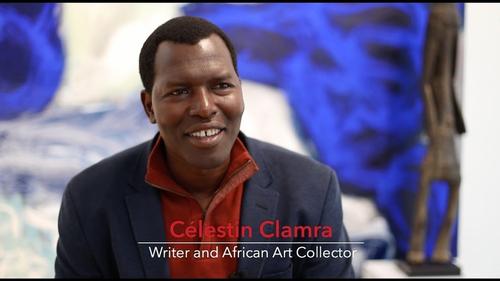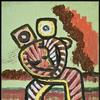WEST HARLEM ART FUND KICKS OFF PUBLIC PROGRAMMING WITH AFRICAN ART DEALER CLAMRA CELESTIN ON GOVERNOR’S ISLAND
- NEW YORK, New York
- /
- May 31, 2018

Colonel’s Row comes alive amidst its landmarked building and distressed interiors with art exhibitions. Presenting a modern response to the history of island, the West Harlem Art Fund returns with Early Encounters. The exhibition features several installations that focus on the early encounters and interactions of the Lenape Indians, African slaves and European explorers (Dutch, African, Caribbean, French) on the island in 1624.
Kicking off their talk series, the West Harlem Art Fund begin with African art and noted tribal art collector Clamra Celestin.
Clamra Celestin was born and raised in Kindiri, a small village in rural Chad by father (the village chief), his eight wives, all my mothers, my thirty-eight brothers and sisters, dozens of aunts and uncles, and hundreds of cousins, fraternizing with soothsayers, healers, sorcerers, djinns, and gods, not to mention more mundane creatures like cattle, goats, pigs, dogs, rats, and snakes – all controlled by the forces of the invisible world; the dead. At the age of 8, I was taken by the Jesuits to be educated at their Catholic School in a city a hundred miles from my village. During the civil war that tore my country apart in the 1980s, I was one of the thousands who nearly lost my life. But I survived the chaos and I was able to graduate from the Jesuits’ High School.
He now lives in New York. His life as a collector of Tribal art started when he met Dr. Muensterberger, a psychoanalyst and one of the pioneers in Tribal art in New York 20 years ago. Celestin is a writer and the French version of his memoir Fils du Ciel: De Kindiri to Manhattan was published by l’Harmattan in Paris in 2011. It recounts Celestin’s journey from my village of Kindiri to Paris and now Manhattan.
Clamra hopes to reduce the poverty level of peasants living in the south of Chad by increasing self-sufficiency in agriculture and local arts.



100x100_c.jpg)












